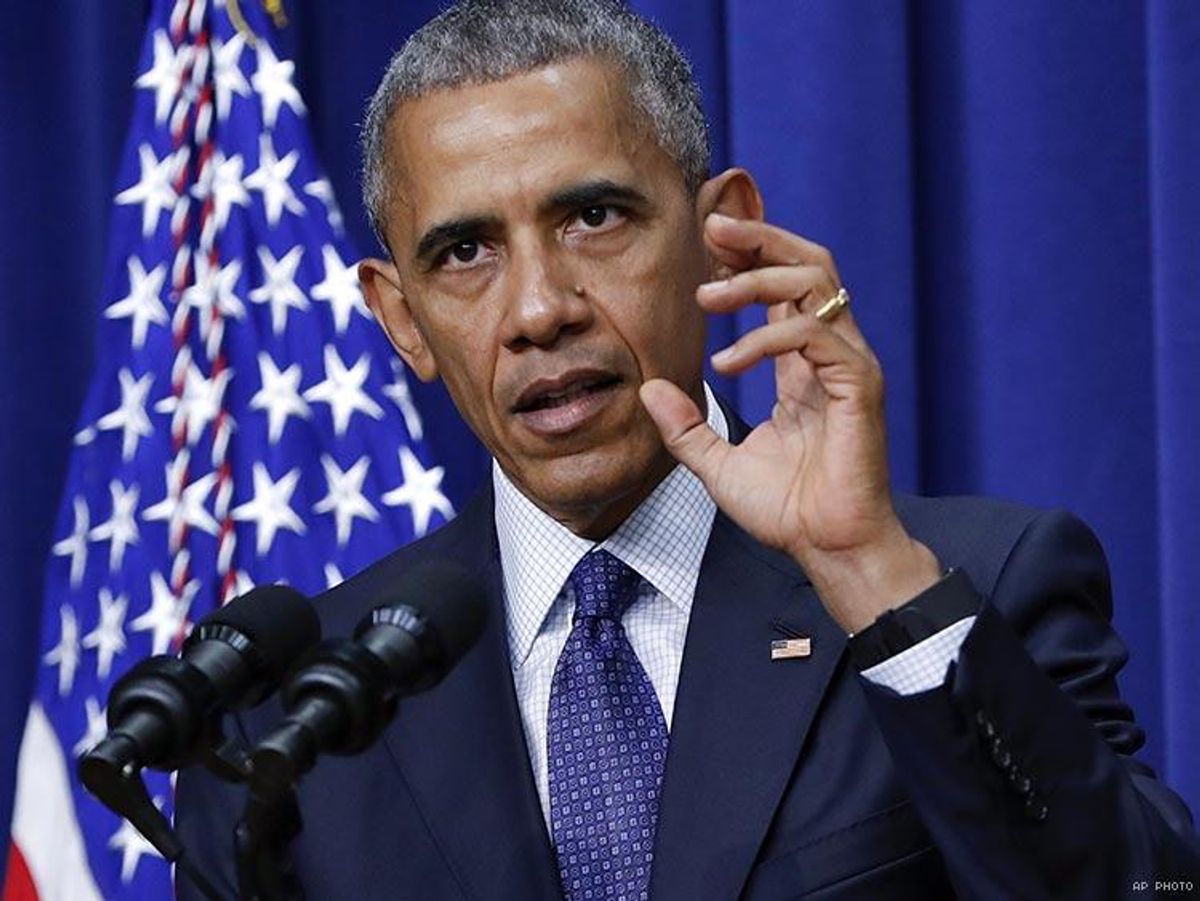A federal judge in Texas last week blocked the Obama administration's guidelines on equal treatment of transgender students in K-12 schools receiving federal funds -- which is almost all schools in the U.S. This means that schools in the 22 states that are currently suing the government over the guidelines do not have to comply until the courts determine the outcome of the suits. (The guidelines are not legally binding, but there was the threat -- albeit not yet acted on -- of losing federal funding for noncompliance.)Of course this has caused no small amount of outrage in the LGBT community, as it is a major setback in the pursuit of equality and fair treatment.
To understand what happened requires no small amount of understanding the ways the government and laws work, so I'll try to sum it up pretty simply. Back in the 1970s, Congress passed an addition to the 1964 Civil Rights Act that specifically targeted discrimination based on sex in federally assisted educational programs. Title IX of the Education Amendments of 1972 was a pretty straightforward law whose interpretation gradually expanded to go beyond sports and the classroom to include sexual harassment and assault. Of course, cases have gone to court over the years to clarify and interpret the law, but it remains at its core intended to eliminate sex discrimination. And that's the problem.
Way back in 1972, "gender" and "sex" were interchangeable terms. Over the years, we have come to separate the two words into two separate ideas, yet we still use them interchangeably. As complex as the use of language in our own community can be, when it comes to the law it's playing with fire. It's all about interpretation, and interpretation can be a huge problem. For example, let's take one of the greatest laws ever passed: the Fourteenth Amendment to the U.S. Constitution. You should remember from your civics class that this was the law that gave equal protection under the law to all Americans. Seems pretty straightforward right? Yeah, um ... no. In Plessy vs. Ferguson, the Supreme Court decided that it was perfectly fine to require black people use separate facilities as long as they were equal because the justices felt the Fourteenth Amendment was never meant to be intended "to abolish distinctions based upon color" or to force "a commingling of the two races upon terms unsatisfactory to either." Yet, just 60 years later, a different Supreme Court decided that enforced segregation was wrong because it in fact created inequality by its very nature, and therefore violated the Fourteenth Amendment. Both cases, coming to separate and completely opposite conclusions, were based on how the words of the law were interpreted. Which brings us back to the Title IX issue.
Nowhere in the text of Title IX is the word "gender." The word "sex" or "sexes" appears 15 times. When the law was written, "sex" was the de jure way of defining the difference between men and women, and how being transgender (or in the period specific terminology, "transsexual") fit into the way we see gender/sex was the purview of only a few niche doctors and psychiatrists. In fact, it was still considered a mental illness in the vein of schizophrenia. This plays into a legal principle called legislative intent, basically meaning that when a law is ambiguous, you look at what the law was intending to accomplish. It's not interested in quibbling over words, but focuses on the goal of the law's creators. When it comes to Title IX and its implications for transgender people, these are dangerous waters, since one could easily make the case that transgender people were never intended to be covered by the law.
This also runs into the issue of legal procedures. There's something you may not have heard of called the Administrative Procedure Act. Let me sum it up: The president and government agencies can't just make up new rules without telling anybody. There has to be a chance for the public, Congress, and the courts to review a rule and have a chance to object before it goes into effect. Creative interpretation of laws and policies has allowed President Obama to get a lot of things done when he has been blocked by Congress, but it's a risky way to get things done. Sure, it's frustrating when it works against you, but imagine President Trump coming up with similarly creative ways to enforce his ideas on immigration or religious discrimination. See how it's a double-edged sword?
Ultimately, Obama, in an attempt to swing for the fences, might have completely missed the ball on this one. His reach on this one might backfire terribly. This means that when it comes to not only transgender as well as lesbian, bisexual, and gay rights, but civil rights in general, we can't rely on tricks of words or legalistic sleight of hand. We have to keep fighting for specific, clear laws and legal decisions that say up front that discriminatory practices against us are wrong. It's imperative we keep fighting for laws that protect us, that they are enforced, and that politicians who are our allies gain more seats in government where they can appoint judges who also support our rights. We can't hope that we can gain our equality by debating what the meaning of the word "is" is. A specific directed effort to change the law must accompany these legalistic tricks. It's the only way we can ensure we can ensure our rights are secured.
AMANDA KERRI is a comedian and writer living in Oklahoma City. Follow her on Twitter @EternalKerri.


















































































